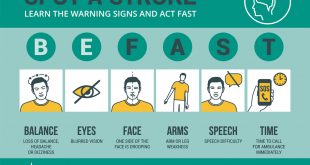

What causes depression & anxiety?
The underlying role of trauma & PTSD
Depression and anxiety are commonly associated with trauma and/or a family history (genetic predisposition). PTSD (Post Traumatic Stress Disorder) is also frequently associated with depression and anxiety, and can be caused by emotional trauma from early childhood, prenatal, birth, relationship break ups, sexual experiences, school bullying, financial loss, and from many other life situations that became overwhelming. Depression and anxiety are often found in family lineages and can be associated with addiction tendencies. Hormone changes that occur at menopause and after giving birth can cause anxiety, depression, and crying for no apparent reason. Head trauma, from sports or an accident, can lead to anxiety and depression, sometimes many years after the event.
While there are many potential underlying causes for depression and anxiety, these emotional health challenges are frequently associated with brainwave imbalances. Many people with depression have excess of Alpha brainwaves on the left side of their brain. Too many Alpha brainwaves can create negative thought patterns, leading to depression. The parts of the brain that are important in processing emotional thoughts and feelings are often impaired in people with PTSD and anxiety. Neurofeedback training can reduce this impairment and the excessive Alpha waves, which leads to a more balanced outlook on life, and a marked decrease in anxiety/depression tendencies.
The detrimental effects of unrecognized depression & anxiety on kids, teens, and the elderly
When a child has fears and worries that interfere with school or home activities, the child may be diagnosed with an anxiety disorder or an inability to focus (attention deficit – ADD/ADHD). Childhood trauma, separation anxiety, phobias, and social anxiety can make children irritable, angry, miss sleep, and produce physical symptoms such as fatigue, headaches, or stomachaches. Unaddressed depression can lead a child to think about, or plan for, suicide. For youth ages 10-24 years, suicide is among the leading causes of death. As we age, our brain can remain traumatized by events in our childhood years, and the depression/anxiety cycle repeats itself later in life.
Medications are not always helpful and can be harmful
Benzodiazepines (Xanax, Valium, etc.) and Antidepressants (SSRIs, SNRIs) may produce some initial symptom relief, but they don’t get at the real cause of the problem, and they may create dependence and require increasing dosages. They may also cause what’s known as “paradoxical effects,” where there is a worsening of symptoms, rather than an improvement. This may result in more anxiety/depression or even suicidal ideation. Taking benzodiazepine medication for 3-6 months alters brain function and raises the risk of developing Alzheimer’s dementia by 32%. Taking these medications for more than six months boosts dementia risk by 84%.
Brain mapping can provide essential information. Neurofeedback can get at the underlying cause
Computerized EEG technology is used to map areas of dysfunction in the brain and develop a treatment protocol. Neurofeedback is a brain-training therapy that corrects brainwave imbalances and helps the brain learn how to function more optimally by re-regulating the brainwave frequency patterns.
It has beneficial effects for ADD/ADHD, autism, depression, anxiety, insomnia, childhood behavioral problems, migraines, post-concussion syndrome, PTSD, and more. It helps balance the brain, which regulates every function of the body. When the brain is balanced, many seemingly unrelated problems can simply vanish.
The role that nutrition & supplements may play
Many people with emotional health challenges can benefit from better nutrition and targeted nutritional supplementation. Anxiety, stress, and PTSD require additional nutritional support to help the body cope with these challenges. With the right nutrients, your brain and body may be more able to overcome anxiety and depression naturally. Nutrition is a major factor influencing the onset, severity, and duration of an anxiety or depressive episode. Individuals with depression or anxiety often have a deficiency in a range of nutrients that are necessary for optimal brain function. Vitamin D, Omega-3 fatty acids, Magnesium, Zinc, Vitamin B-12, Folate, Flavonoids, Vitamin C, Potassium, and Iron are the top nutrients deficient in the diet of most Americans. Nutrition is a highly underrated lifestyle factor that can markedly improve many emotional health issues and help overcome some inherited tendencies for anxiety and depression.
How the Brain Wave Center puts it all together
The Brain Wave Center takes a holistic view of your emotional health. Isn’t it time that you get to the cause rather than masking symptoms with more medications? Our comprehensive approach addresses trauma, nutrition, hormones, and brainwave patterns.
For more information on our comprehensive approach to depression, anxiety, and other emotional health challenges, contact The Brain Wave Centers at 941.552.4500 for a free initial consultation. Or visit us at www.brainwavecenters.com.
941.552.4500
BRAINWAVECENTERS.COM
640 S. Washington Blvd., Sarasota, Florida 34236
 Southwest Florida's Health and Wellness Magazine Health and Wellness Articles
Southwest Florida's Health and Wellness Magazine Health and Wellness Articles

